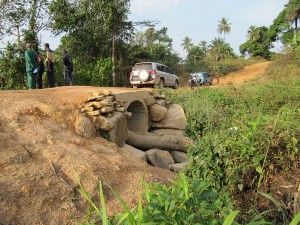Home » Posts tagged 'Sustainable Social Economic Development'
Tag Archives: Sustainable Social Economic Development
Sustainable Social Economic Development
WCI has practised sustainable social economic development with the governments and extractive industries of several resource rich countries such as: Guyana, Senegal, Guinea, Ghana, Sierra Leone and Liberia. In 2011 to 2012, in Liberia, WCI lead a Ministry of Lands, Mines & Energy (MoLME) for the World Bank EI-TAF grant to support their Sustainable Social Economic programme by adopting the Ministry of Planning & Economic Affairs (MoPEA) ‘accelerated growth corridors strategies’.
The World Bank and others have long recognised the potential of utilising the benefits of the direct support extractive industries give to an area; such as new infrastructure for new economic growth corridors for ‘up and down stream’ economic development. The overall concept of extractive industries and their Corporate Social Responsibility (CSR) is often seen as a panacea for social economic development. This is possibly an outdated, narrowly focused, reactive and often unsustainable policy unless there also exists long-term social economic planning. Governments and Public Private Partnership (PPP) or Public Private and Community Partnership (PPCP) must manage each other’s often unrealistic expectations of the private sector to address government mining community services shortfalls. The benefits of extractive industries infrastructure do not happen without better partnership, shared responsibilities, regulatory monitoring & compliance oversight.
In emerging economy’s, resource wealth is known as the ‘curse of plenty’, questioning why resource wealth often leads, paradoxically, to economic stagnation and instability known as ‘Dutch disease’. This calls for strong PPP’s or more likely PPCP’s with affected mining communities in order to support the weakness of governmental project management in large infrastructure projects. Governments need to divert mineral royalties into infrastructure projects, building human capital for the future and alternative economic development rather than address it in the current ‘tax gap’ (see our section on Tax & Customs Reform).
WCI is well placed to support Sustainable Social Economic Development using its network of partners and specialists.
Contact us to see how we can help you.
Back to Home Page
